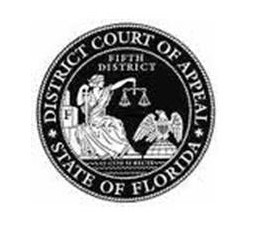The Florida Fifth District Court of Appeal recently affirmed summary judgment in favor of a mortgagee in an action challenging a notice of default in a mortgage foreclosure action that provided only 28 days to cure instead of the 30 days required under the mortgage.
A copy of the opinion is available at: Link to Opinion.
The mortgagee sent a notice of default to the borrowers that provided 28 days to cure instead of the 30 days specified in the mortgage. The borrower failed to cure the default and the mortgagee sued to foreclose.
Almost four years after the foreclosure action was filed and shortly before the hearing on the mortgagee’s motion for summary judgment, the borrowers filed an amended answer raising for the first time the issue of the allegedly defective notice of default. The trial court granted the mortgagee’s motion for summary judgment, and the borrower appealed.
The Appellate Court affirmed, holding that even though the notice of default was deficient, and thus technically breached the mortgage contract, the breach was not material because the borrowers never attempted to cure the default before, during or after the filing of the mortgage foreclosure action.
The Appellate Court explained that the purpose of the notice provision at issue is to provide the borrower an opportunity to cure the default before acceleration, and because the borrowers never attempted to cure the default, they could not claim they were harmed by the technical breach.
Relying on its earlier decisions in Gorel v. The Bank of New York, Mellon case no. 5D13-3272 (Fla. 5th DCA May 8, 2015) and Allstate Floridian Ins. Co. v. Farmer, 104 So. 3d 1242 (Fla. 5th DCA 2012), the Court held that, absent some prejudice, the breach of a condition precedent is not a defense to the enforcement of an otherwise valid contract.
The Court distinguished its previous ruling in Samaroo v. Wells Fargo Bank 137 So. 3d 1127 (Fla. 5th DCA 2014) from the case at bar because in Samaroo the defective notice omitted an entire item from the list required by the mortgage, and the borrower raised the issue promptly after the case was filed, such that the Court in Samaroo concluded that the defect was a material breach.
One judge dissented, arguing that where a party raises affirmative defenses, summary judgment is not proper where issues of fact are raised in affirmative defenses, which have not been refuted. The dissent argued that the mortgagee did not specifically refute the affirmative defense of defective notice, and the issue of materiality was not before the trial court.
In addition, the dissent pointed out that the majority’s ruling as a matter of law that the breach was not material would render all notice provisions meaningless because the mortgagee could simply choose not to provide any notice of default and then later argue the failure was not a material breach unless the borrower attempts to cure the default. Accordingly the dissent argued the summary judgment should have been reversed and the case remanded for further proceedings.
Maurice Wutscher attorney Patrick Kane also contributed to this article.


